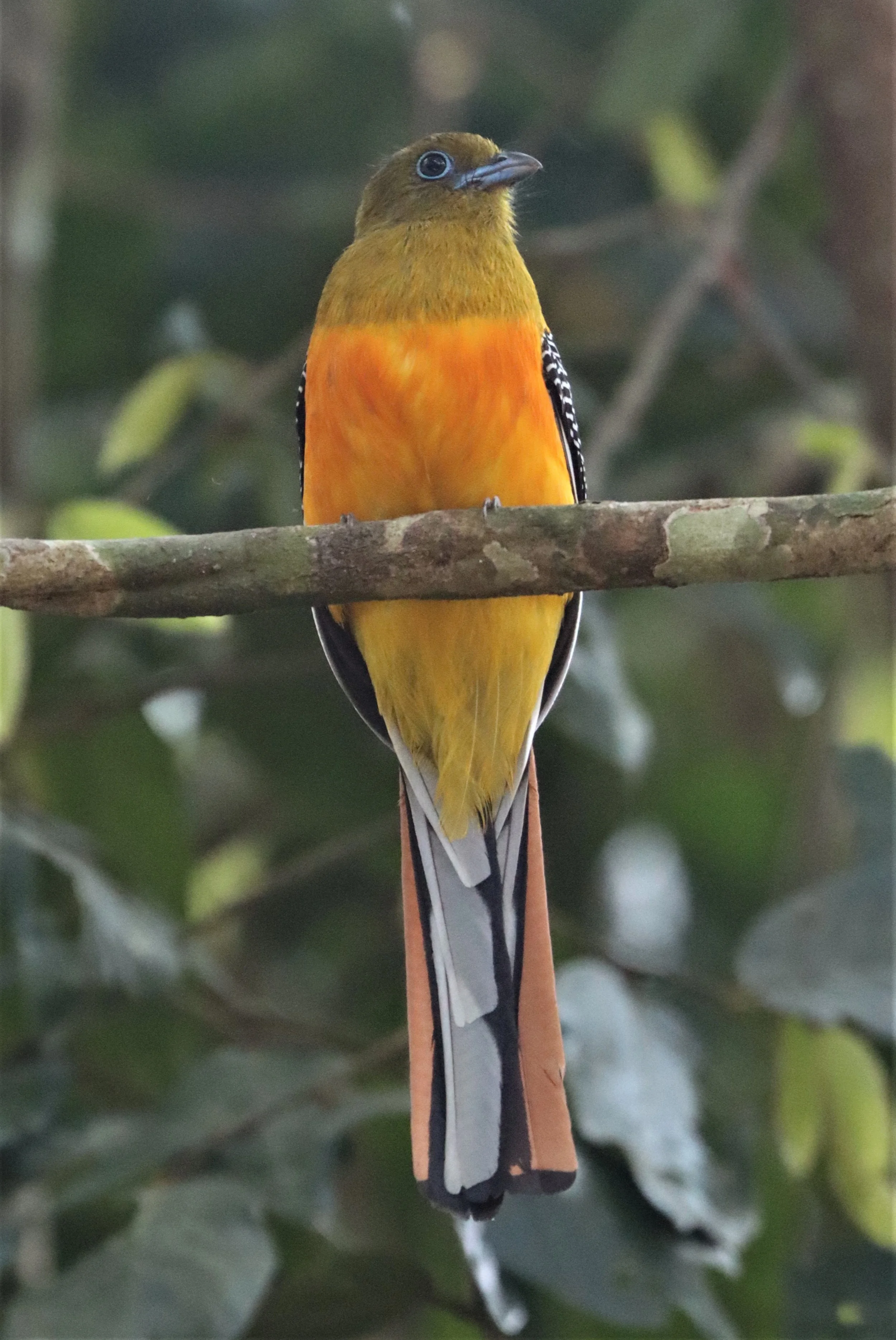Family Trogonidae - Trogons
The Trogons and Quetzals are birds in the order Trogoniformes which contains only one family, the Trogonidae. The family Trogonidae contains 46 species in seven genera. The fossil record of the trogons dates back 49 million years to the Early Eocene. They might constitute a member of the basal radiation of the order Coraciiformes and order Passeriformes or be closely related to mousebirds and owls. The word trogon is Greek for "nibbling" and refers to the fact that these birds gnaw holes in trees to make their nests.
Trogons are residents of tropical forests worldwide. The greatest diversity is in the Neotropics, where four genera, containing 24 species, occur. The genus Apaloderma contains the three African species. The genera Harpactes and Apalharpactes, containing twelve species, are found in southeast Asia.
They feed on insects and fruit, and their broad bills and weak legs reflect their diet and arboreal habits. Although their flight is fast, they are reluctant to fly any distance. Trogons are generally not migratory, although some species undertake partial local movements. Trogons have soft, often colourful, feathers with distinctive male and female plumage. They are the only type of animal with a heterodactyl toe arrangement. They nest in holes dug into trees or termite nests, laying 2–4 white or pastel-coloured eggs.
The image to the right is the Red-headed Trogon, one of the most common and beautiful Trogon species I encounter often in Thailand, especially in the higher cloud forests of Khao Yai National Park.
Black-throated Trogon (Trogon rufus) Carlos Botelho State Park, Sao Paulo State
Blue-crowned Trogon (Trogon curucui) Pousada Aguape - Fazenda São José Zona Rural, Aquidauana, Mato Grosso do Sul, Brazil
Green-backed Trogon (Trogon viridis) Illeus, Bahia Brazil, Una Township Area
Masked Trogon (Trogon personatus) San Isidro Lodge, Ecuador
Orange-breasted Trogon (Harpactes oreskios) Khao Yai NP Thailand
Red-headed Trogon (Harpactes erythrocephalus) Pha Dieu Dai Boardwalk Khao Yai NP Thailand
Scarlet-rumped Trogon (Harpactes duvaucelii) Kinabatangan River Borneo

Slaty-tailed Trogon (Trogon massena) Andes Cloudforest Peru
Crested Quetzal (Pharomachrus antisianus) Mindo, Ecuador - Chocoan Lowlands and Valley
Red-naped Trogon (Harpactes kasumba) Hala Bala National Wildlife Sanctuary Thailand









